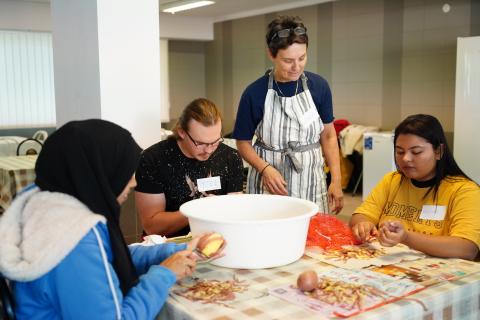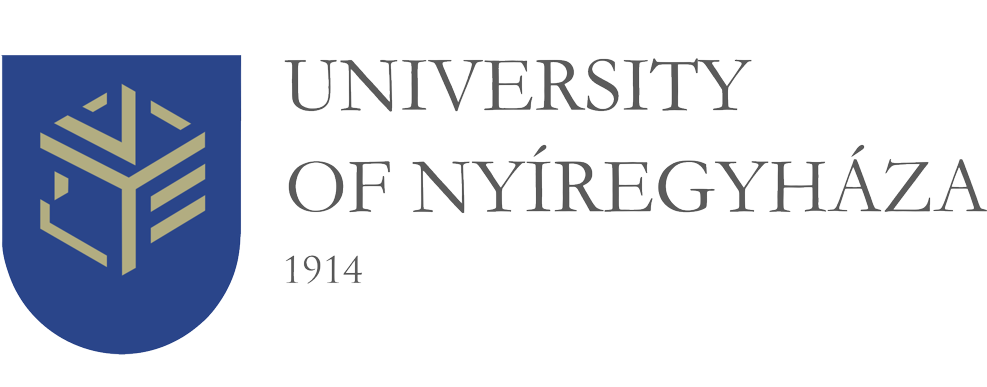
Potato pancakes, quiz, montage – nearly 60 international and Hungarian students participated in the workshop titled "Getting to Know European Culture" at the University of Nyíregyháza. The program was organized by the Mental Health and Equal Opportunities Center in collaboration with the International Relations Office. The aim of the event was to build community, strengthen cultural ties, and introduce young people to European traditions.
The event focused on a real specialty, potato pancakes. This dish, which originated from the Northern part of Hungary and is known by many names, is also considered a traditional dish in the Nyírség region. Due to its meat-free nature, it is accepted in many religious and cultural circles, and its rich flavour can be enjoyed by everyone. Gourmets tasted the finished delicacies seasoned with sour cream or cheese, and most of them encountered this dish for the first time in their lives.
The staff of the Mental Health and Equal Opportunities Center baked more than a hundred crispy pancakes in two hours and made sure that the kitchen work became a real community experience. There was also time for games during the tasting: the students were able to test their knowledge in a European Union quiz, and then they created a joint montage, which became a lasting memory of cultural diversity. The staff of the International Relations Office organize numerous programs throughout the year at the University of Nyíregyháza to help foreign students integrate. The success of the workshop was evident in the fact that participants left with unanimously positive experiences (and the recipe for potato pancakes).
The cheerful atmosphere of the event showed that gastronomy is an excellent tool for building relationships. Friendships can be forged and young people from different parts of the world can become closer to each other through baking, playing games, and creating things together. According to the organizers, the program not only provides a culinary experience, but also builds cultural bridges.
Thanks also go to Miklós Támba and his team, who contributed to the success of the event by providing the venue and their support.


